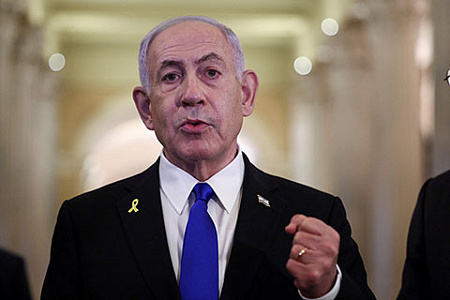
A significant policy divergence is emerging between Israel and the United States over how to approach Iran, with Israeli Prime Minister Benjamin Netanyahu expressing deep skepticism about the prospects for negotiation. In recent comments on American television, Netanyahu asserted that Tehran is not interested in a ‘good deal,’ a position that clashes with the Trump administration’s hope to bring Iran back to the negotiating table, even in the aftermath of a recent 12-day war. Sources indicate a growing friction between President Donald Trump and Netanyahu on the future of Iran policy.
Speaking on Fox News, Netanyahu outlined what he considers an acceptable agreement with Tehran. ‘A good deal means they stop all nuclear activity, all enrichment,’ he explained, adding that Iran must also cease its ballistic missile production and dismantle its regional ‘axis of terror.’ The Israeli leader expressed a fundamental distrust of the Iranian regime, stating, ‘This regime has a built-in DNA, and that DNA says, ‘No to America, no to Israel!” He warned that Iran’s missiles would eventually pose a threat to the United States itself.
Netanyahu’s public statements starkly contrast with the position of his key ally, President Trump, who remains committed to diplomacy despite recent intense US-Iranian military exchanges. According to sources cited by Reuters, Netanyahu was left dissatisfied after two meetings with Trump at the White House, reportedly upset by the U.S. administration’s continued preparations for nuclear talks. The Israeli premier, these sources emphasize, opposes any move that could provide an economic or political lifeline to the Iranian government.
Unnamed diplomats confirmed that the two leaders’ meetings revealed a clear split on whether to continue applying pressure on a defiant Iran. While Trump’s priority is to use diplomacy to secure guarantees that Iran will not develop nuclear weapons, Netanyahu reportedly favors applying maximum force against his regional adversary. Sources claim the Israeli prime minister is seeking nothing less than a ‘Libyan model’ for Iran, which would involve the complete dismantling of its nuclear facilities under strict international supervision.
Echoing this hardline stance, Israeli Defense Minister Israel Katz stated that Israel intends to build upon the success of its recent ‘People as a Lion’ operation against Iran’s nuclear program to ensure it cannot be revived. A key Israeli concern is that approximately 400 kg of highly enriched uranium remains at Iranian nuclear sites bombed during the recent conflict. Israeli officials believe Iran could retrieve this material from the rubble and move it to clandestine research facilities.
During his Fox News appearance, Netanyahu shared Israeli intelligence assessments suggesting that prior to the 12-day war, Iran had the capability to construct several fully assembled nuclear weapons within a year. He further claimed that Tehran was planning to ramp up its defense industry to produce nearly 300 powerful ballistic missiles per month, which serve as delivery systems for nuclear warheads.
However, international inspectors offer a more cautious assessment of Iran’s nuclear potential. Rafael Grossi, Director General of the International Atomic Energy Agency (IAEA), clarified the distinction between capability and reality. ‘The fact that Iran can obtain a nuclear weapon and the fact that it has one are two different issues,’ Grossi stated. He acknowledged that IAEA data presented before the recent conflict was ‘sensitive’ because it indicated a ‘certain potential for creating a nuclear bomb,’ but stressed this was no guarantee the potential would be realized.
Grossi elaborated that if Iran were to actually attempt to build a bomb, the process would take ‘months or even longer,’ requiring critical steps such as processing enriched uranium into metal and developing highly complex warhead systems. While asserting that the Iranian nuclear issue cannot be solved by military pressure, Grossi declined to judge the actions taken during the conflict, emphasizing that the IAEA’s role is to establish facts, leaving political interpretation to world leaders.
